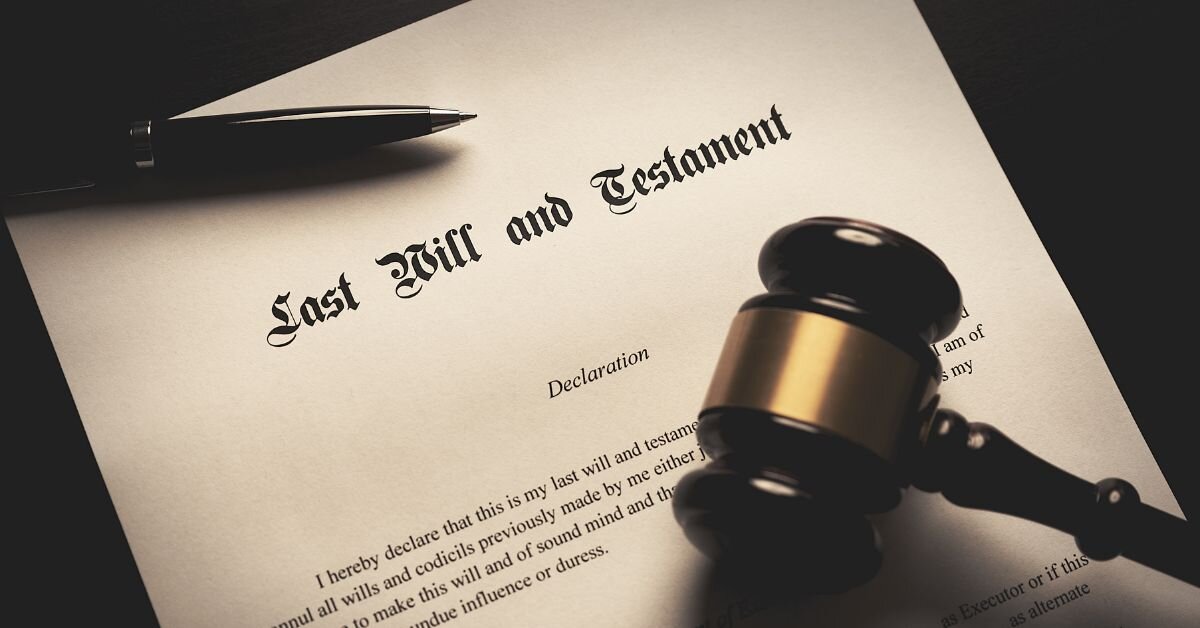
Losing someone is tough. But when that person passes on dying without a will, things can get complicated real fast. Who gets what? Who’s in charge? Well, in California, the California probate court steps in and follows California intestate succession laws to decide who inherits the assets. Now, if you think everything automatically goes to the closest family member, that’s not always the case. The probate process in California is what determines how everything gets distributed, and trust me, it ain’t always simple. Without proper estate planning, on dying without a will can lead to unexpected legal battles and delays that make the inheritance process even more stressful for loved ones.
What Happens If Someone Dies Without a Will?
When a person dies on dying without a will, their estate goes through a legal process called probate. It’s the court’s job to figure out who inherits what, based on California intestate succession laws. These laws follow a strict order, prioritizing spouses, children, and then other family members. If no heirs exist, the state might even take over the estate. The probate process in California can be long, sometimes taking months or even years, especially if there are disputes. That’s why having a will is important. It saves family members from a lot of unnecessary stress.
Who Handles the Estate?
When there’s no will, no executor has been named. So, the California probate court appoints someone—an administrator—to manage the estate. This person will pay off debts, file taxes, and make sure assets are distributed according to estate distribution laws. It’s a big job. Sometimes, family members argue over who should be in charge. When that happens, the court makes the final decision. And believe me, these battles can turn ugly, dragging the process out for months. That’s why planning ahead matters. A will can prevent these issues before they start.
The Probate Process in California When on Dying Without a Will

When someone dies on dying without a will, their estate must go through probate before any assets are distributed. The probate process in California is a court-supervised procedure that ensures debts are paid and remaining assets are given to rightful heirs. This process can take months or even years, depending on the complexity of the estate. Without a will, probate becomes even more complicated since the court has to determine heirs based on California intestate succession. Families often find probate stressful, as disputes over inheritance can arise, leading to legal delays and additional costs.
How Probate Works
The probate process in California starts when someone files a petition with the court. That could be a family member or anyone with a stake in the estate. The court then appoints an administrator to handle things. Their job? Identify assets, pay debts, and distribute the rest. Probate can take time, especially if there are complex assets like real estate. And if family members disagree? That can slow things down even more. The California probate court ultimately ensures that everything follows estate distribution laws, so no one gets more or less than they legally should.
How Long Does Probate Take?
It varies. The probate process in California can take six months. Or it can stretch out for years if people fight over assets. Simple cases, where everything is straightforward, go quicker. But if someone contests who should get what, the court has to step in, dragging things out. And let’s not forget legal fees. The longer probate lasts, the more money goes to attorneys and court costs, leaving less for the heirs. That’s another reason why estate planning is a must. A little effort now can save your family a ton of stress later.
Who Inherits When on Dying Without a Will in California?
Inheritance doesn’t work the way many people assume. If someone passes on dying without a will, assets aren’t automatically divided equally among family members. Instead, the court follows California intestate succession laws, which prioritize spouses, children, and then other close relatives. If the deceased was married, the surviving spouse often inherits most of the estate, but separate property may be divided differently under estate distribution laws. If there’s no spouse or children, inheritance moves to parents, siblings, and extended family. In cases where no heirs exist, the estate could eventually be claimed by the state.
Spouses and Community Property
California is a community property state, meaning anything acquired during a marriage belongs equally to both spouses. So, if someone passes on dying without a will, the surviving spouse usually gets most, if not all, of the community property. But things get trickier when it comes to separate property—assets owned before marriage or inherited individually. In those cases, next of kin inheritance rules apply, meaning other family members could get a share. If there are children, the spouse and kids divide the separate property. No kids? Then it moves on to parents, siblings, or other close relatives.
What About the Children?
If the deceased had kids, they have a direct claim to the estate under next of kin inheritance. If no surviving spouse exists, the children inherit everything. If there are multiple children, they split it evenly. But what if one of the kids has already passed away? Their share then goes to their own children (the deceased’s grandkids). This follows heirship rules in California. It’s all pretty structured, leaving little room for personal wishes. If someone wants specific assets to go to certain people, writing a will is the only way to ensure that happens.
Assets That Bypass Probate When on Dying Without a Will

Not all property goes through probate when someone dies on dying without a will. Some assets are structured to pass directly to beneficiaries, avoiding court involvement. Common examples include jointly owned property, where the surviving owner automatically inherits it, and life insurance policies and retirement accounts, which have named beneficiaries. Living trusts also bypass probate, ensuring a smoother transfer of assets. Additionally, payable-on-death (POD) accounts go directly to the named beneficiary without legal delays. Understanding which assets avoid probate can help individuals plan better and prevent their loved ones from dealing with a complicated court process.
What Property Avoids Intestate Succession?
Not everything gets stuck in probate. Some assets go straight to the intended beneficiaries, skipping the California probate court entirely. This includes:
- Jointly owned property – If a home or bank account is owned jointly, the surviving owner automatically gets it.
- Life insurance policies and retirement accounts – These have designated beneficiaries who get the funds immediately.
- Living trusts – Assets held in a trust bypass probate and are distributed directly to named heirs.
- Payable-on-death (POD) accounts – Some bank accounts allow the owner to name a beneficiary who gets the money upon death.
If someone wants to avoid the legal delays of probate, setting up a living trust is one of the best ways to do it.
What Happens If No One Claims the Estate on Dying Without a Will?
When there are no living heirs, or no one steps forward to claim an estate, the state takes over through a process called escheatment. This means all assets eventually become government property. Under heirship rules in California, the California probate court first tries to locate any possible relatives. If none are found, the state absorbs the assets. This is rare, but it happens when people pass away with no close family or estate planning. Without a will or trust, the risk of an estate going unclaimed increases, making it crucial to establish a legal plan in advance.
When the State Steps In
If there are no heirs and no one comes forward, the state takes the estate through a process called escheatment. Under heirship rules in California, the court first tries to find distant relatives. But if no one claims it, California gets it all. The state isn’t exactly in a hurry to give property away, so this is a rare outcome. Still, it happens. If you don’t want your hard-earned assets ending up in government hands, making a will is the way to go. Otherwise, you risk having everything taken by the state.
Why a Will Matters to Avoid Issues on Dying Without a Will

A will ensures that a person’s assets are distributed according to their wishes, not state law. Without one, estate distribution laws and California intestate succession dictate who gets what, which may not align with what the deceased wanted. The probate process in California also becomes more complicated, leading to long court battles and financial stress for loved ones. Having a will not only simplifies estate transfer but also helps avoid disputes. Whether the goal is to protect family members, leave assets to a friend, or donate to charity, a will provides the control needed over one’s estate.
Benefits of Estate Planning
A will makes life easier for your loved ones. No court battles, no guessing games. It ensures that assets go where you want them to. Without one, estate distribution laws kick in, and the government decides who gets what. Want to leave something to a friend? A charity? Without a will, that won’t happen. Everything follows California intestate succession instead. Estate planning isn’t just for the wealthy; it’s for anyone who wants control over their assets after they’re gone. A little effort today can save your family a ton of headaches later.
The Bottom Line
Passing on dying without a will can create unnecessary legal complications for your loved ones. The probate process in California is time-consuming, and estate distribution laws may not reflect your personal wishes. Without a clear estate plan, California intestate succession determines who inherits your assets, which could lead to family disputes and delays in receiving inheritances. If no heirs are found, the state could claim your property under heirship rules in California.
Don’t leave your family guessing or struggling through probate. The best way to avoid legal hassles is to have a proper estate plan. If you or a loved one are dealing with property issues and need a hassle-free solution, We Buy Houses County Wide can help. Whether you’ve inherited a property or need to sell fast, our team offers fair cash deals with no extra fees or repairs required.
FAQs
1. What happens if I die without a will in California?
If you die on dying without a will, your estate is distributed according to California intestate succession, meaning the court decides who inherits your assets.
2. How long does probate take in California?
The probate process in California can take anywhere from six months to years, depending on estate complexity and disputes.
3. How long do you have to file probate after death in California without a will?
In California, probate should be filed as soon as possible after death, but there is no strict deadline. However, delays can cause complications. Typically, the process begins within 30 to 40 days after the person passes on dying without a will. If the estate remains unclaimed for too long, assets may be subject to state intervention under heirship rules in California.
4. How to transfer property after death of parent without will in California?
If a parent dies on dying without a will in California, the property is transferred according to California intestate succession. You may need to go through probate, where the California probate court will determine the rightful heirs. If the estate qualifies for simplified probate, you can file a small estate affidavit to claim the property without a full probate process.
5. Does a spouse automatically inherit everything in California?
Not always. Under estate distribution laws, a surviving spouse receives all community property. However, next of kin inheritance applies to separate property, which may be split between the spouse and other heirs like children, parents, or siblings. If the deceased has no close family, the spouse may inherit everything under California intestate succession.

